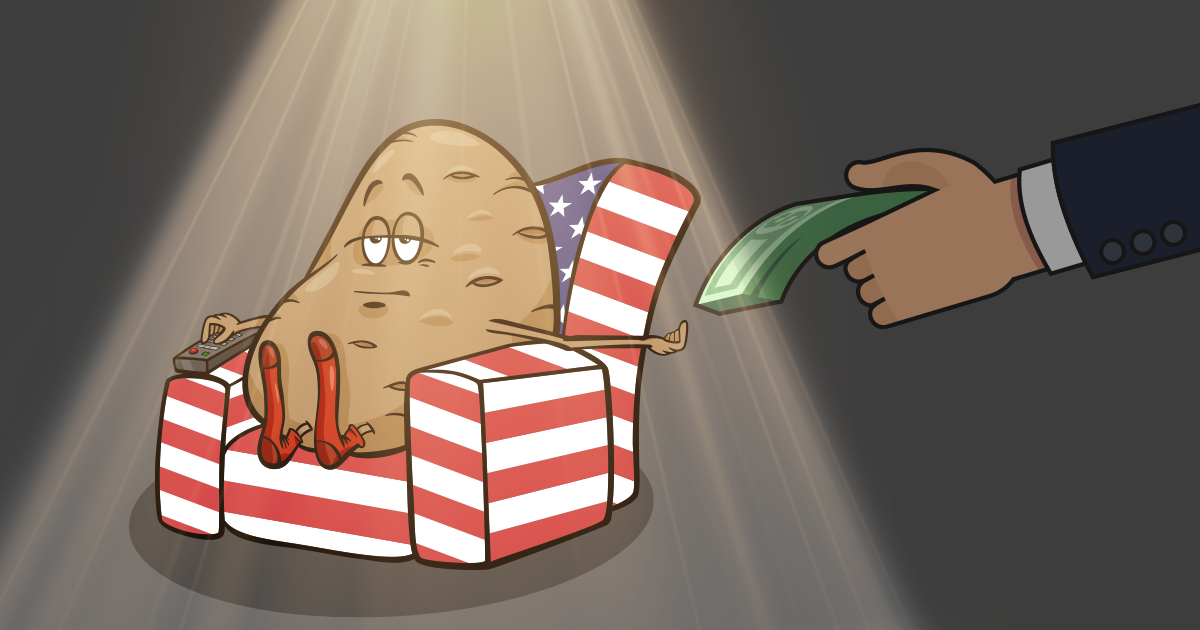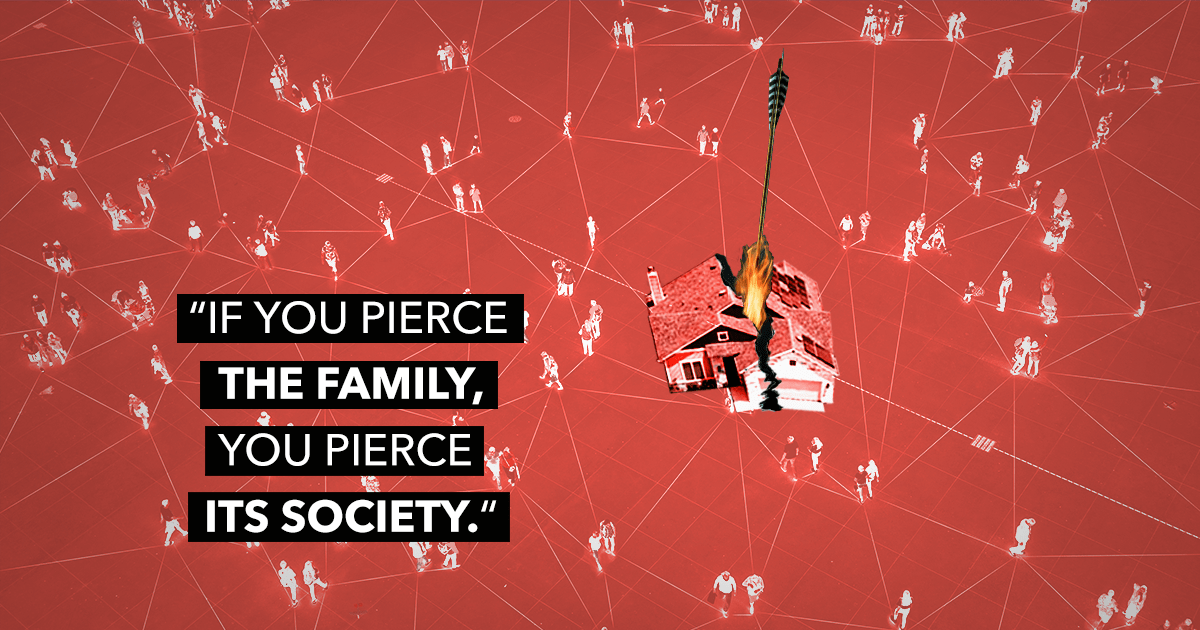« Read Threat In Our Time #5 | Read Threat In Our Time #7 »
It is no different when one is assessing the threats to a culture. Are the people strong in character? Are they resilient and alert? Are they capable of withstanding the storm or are they weak and ready to give in or give up? Are they unified by a noble and high cultural vision? The Scripture rightly says:
Where there is no vision, the people perish [or are unrestrained] … Proverbs 29:18
There are many, many ways to assess the health of a culture. We have already looked at several. For generations now, we have consistently sowed the message: "it's all about me." People have come to expect it. We have descended into some self-deceptive me-ology of "homo deus," where even a child is now given the right of divine proclamation in what sex they would like to be. Defying these divine assertions is considered blasphemy and subject to being purged. This self-obsession is practically indiscernible from the state of Rome before it fell.
Here are four other characteristics that paint an ominous picture of our inability to withstand the perfect storm raging around us:
Addicted. Addiction, in a general sense is defined as:
The compulsion to repetitively involve oneself with a substance or activity that is overall unhealthy.
If one considers "substance" addictions, the statistics are not good. Conservative numbers indicate that 1 in 16 adults have an "alcohol use disorder," which we use to call alcoholism. When one considers the impact that those addicted have on family members and friends, it is not hard to think that half of our nation is negatively affected by this addiction. Consider college students: 1 in 3 use marijuana (32.6%); 1 in 8 use cocaine (13.3%); 1 in 8 use hallucinogens (13.0%); and 1 in 10 use MDMA (Ecstasy) (9.8%). Many argue that the U.S. is in the midst of an "opioid" crisis. In 2019, nearly 50,000 people died of opioid overdose.
Nineteen states have made marijuana use fully legal with 25 states close behind. My state, Colorado, was second to legalize marijuana. It was sold to voters because it would bring financial gain to the state. In reality, the cost to taxpayers is now $5 for every $1 gained in tax revenue. This is in addition to the expenses covering things like marijuana-related DUIs that cost the state $25 million in 2016 and is nothing compared to the loss of productivity and the reduced inner drive that comes from its use. The National Institute on Drug Abuse states that marijuana is the most used drug and its long-term effects are damaging us. This includes infertility, increased testosterone in women, decreased testosterone in men, and a psychological dependence that demands an ever-increasing use of the drug. This is why marijuana is considered a gateway to harder drugs like heroin and cocaine.
On the sweeter side, many consider that Americans are addicted to sugar in all of its forms. We crave it. We have eating addictions on both ends: too little or too much.
But the larger concern is with the addictions that are increasingly part of our daily routines. These deal not with "substance" addictions, but addictions to "activities" like video games, social media, music, and entertainment, pornography, etc. Teenagers spend 9 hours a day consuming screen entertainment; adults 6 hours per day. It is not too far of a stretch to say that we are even "obsessed" with these things and would suffer withdrawal symptoms if they were taken away.
The implications for one's life, though, is striking. Not only are we dealing with possible physical disorders that arise from our addictions, but one must consider the loss of fruitfulness that comes from the sheer amount of time and the percentage of one's life that is being lost. It wouldn't be a bad exercise for each of us to take a week and make a personal log of how we spend our time. How much of it is being fruitful and how much of it is basically for my own pleasure?
Soft. When I say this, I am thinking about the toughness that built this nation. I think of the pioneer mother who buried her child by the side of the trail, mourned, but then climbed up into the covered wagon, grabbed the reins and pressed on. We are now debilitated and require counseling if someone fails to use our personal pronoun. I think of the couple and family who cleared their land and fought the elements and hardships required to make a go of a small farm, working sunup to sundown. Now we demand paid vacation and sick time, maternal and paternal leave, shorter work days, etc. or we sit home and take unemployment and don't work at all. I think of the founding generations whose day was spent filled with simply working to provide the means of life: growing food, fetching water, making clothes, maintaining their shelter, and yet they found time to read and worship and visit neighbors, helping them when the need arose. Now we spend hours and hours a day consuming entertainment and complain if the line at the fast-food restaurant is too long. We don't know our neighbors and don't really want to. I think of those who went to war for the cause of freedom and the many who gave their lives for the benefit of others. Now it is hard to find someone who is willing to risk their Facebook numbers by speaking out against the insanity of our times or to speak with any patriotic zeal. We used to say "sticks and stones may break my bones, but words will never hurt me." Now, the wrong words will put us in an emotional tailspin that requires psychological therapy. And if we use the wrong words, it can get us canceled or purged. With the underlying perspective that it is all about me, if the world doesn't follow my script, I become incapacitated, or, engorged with the power now granted to the offended and call upon the "system" to punish the offender and make restitution to me. Since "compassion" (malevolent) has become our primary ethic, anything that gets in the way of one's personal desires will be seen as the new evil.
If we were to be completely honest with ourselves, we are pampered, coddled, over-indulged, overweight, weak-willed, and easy pickings for an overthrow.
Dependent. Dependency is a means to become soft, but it also strips us of our incentive to be fruitful. Such is what happens when the State pays people to not work. Jobs will go unfilled and the fruit of a nation will be diminished. Over half of Americans receive dependency payments from the Federal Government. Becoming dependent on substances, such as alcohol or drugs can prevent us from dealing with bumps in our life, using the substance to falsely remove us from the troubles. That too leads to weakness and softness in which we are unable to face difficulties and would rather run away than confront them, even if they are enemies of what is right. Becoming dependent upon entertainment and pleasure or other forms of escape can also diminish our fruitfulness and the downstream life that is meant to come from that fruit. Spiritual dependency comes when religious institutions become the substitute for our own spiritual responsibilities. I can come to believe that the church has the primary responsibility for the spiritual growth of my children, or my own spiritual growth, or my own ministerial responsibilities, replacing the Lord's command to love my neighbor with participation in church programs. Dependencies are the result of conceding control of my life and responsibilities to someone or something that will, in return, supposedly care for me in my slothfulness. This, too, is delivered to us through malevolent compassion for in the end it will destroy us and our culture.
Lost. When people lose sight of the Larger Story of God, it becomes all about their story. When this happens, we lose the source of true significance. Significance is one of the greatest, if not the greatest, drives of the human soul. Totalitarian regimes exerted enormous power by entering a home at night, removing the non-compliant, never to be seen or heard of again. He disappeared into a nothingness hole. He became insignificant. This consequence of becoming nothing was the single most powerful tool of the tyrant. Losing all significance is repugnant to the human soul for we were made to find our significance in our Creator. When we lose sight of who we truly are and Whose we truly are, we enter into a desperate struggle to find significance from somewhere, anywhere. Some try to find it in their beauty and form; some in their humor and charisma; some in their intellect; some in their power and control over others. Some sense they gain significance by taking it from others, thinking that by belittling or mocking or cutting another down, they have somehow become more significant by elevating themselves. When you become cognizant of this, you will see it played out all around us. Some are so afraid of losing any significance that they will not take any risks in relationships or interactions in which they might be embarrassed or belittled. It is now part of our culture that significance comes from being labeled as part of an oppressed class. Being "offended" now brings its own warped sense of significance and people actually long for someone to offend them.
When people lose sight of the Larger Story of God, they become rootless and swayed by whatever emotional wind is currently blowing. They are tossed to and fro by things that go viral, by headlines or Tweets or YouTube videos, by entertainment stars who speak as if they are culture's clerics. The Primary Ethic of Compassion (malevolent) moves us to embrace what is vile. The Noble Male and the Virtuous Female are no longer heroes to which we strive. Our striving is now for things vain and empty. The words of Solomon are ever more relevant to us. He sought for meaning in gained knowledge, but found it to be meaningless. We have the world's knowledge at our Google fingertips and in the midst of this overwhelming mass of knowledge, we find it ultimately unfulfilling and after hours of stuffing ourselves with it, we end up empty. Solomon sought for significance in pleasure and drink. He sought for it in surrounding himself with slaves who could cater to his every whim, like asking Alexa for the weather or for pizza to be delivered or a pair of new shoes, as per my special order, delivered by my coachman tomorrow. And yet, when my whims are met, I feel more alone and hollow than before. Solomon denied himself nothing his eyes desired, like putting on earbuds and listening to any music he wanted, or watching dancers or actors perform in any genre of movie one could desire. He surrounded himself with comfort and pleasure and in the end, it was all meaningless ... void of significance.
Such is our culture, wealthy with pleasures and things beyond the dreams of any king in the past, yet desperate to be significant, vainly seeking it from the things of the world.
I do not intend for all of this to be depressing. On the contrary, this is the necessary reality that the people of God need in order that we might "understand the times in which we live" so that we might know what we should do. What will overcome this dismal state of our culture and the moaning and groaning we see all around us (open or hidden)? I know of only one thing and that is the Christ-transformed lives of individual men and women. And that can only come through the diligent prayers of God's people and the deep relationships that He has called us to form with those providentially around us ... those who are addicted and soft, dependent and lost.
Resist the pull of our culture into addictions and obsessions, into becoming soft and desiring pleasure and acceptance more than telling the truth, into becoming dependent upon anything that destroys your incentive to be fruitful, into getting caught up in your own small story and losing your place in the Meta-narrative of God.
Be strong and courageous, dear Remnant! This is our day. This is our time. All for the glory of the Lord!











